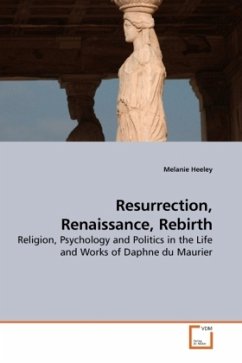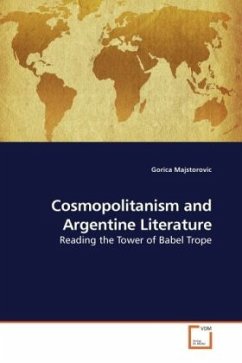
Female Identity in Renaissance Literature
Queen Elizabeth I and Literary Representations of Women in Power in Sixteenth and Seventeenth-Century Literature
Versandkostenfrei!
Versandfertig in 6-10 Tagen
32,99 €
inkl. MwSt.

PAYBACK Punkte
16 °P sammeln!
Queen Elizabeth I ascended to the throne in 1558 andruled until her death in 1603, presiding over the Golden Age of England. The appearance of a femaleruler in a patriarchal society precipitated are-imagining of female rule, both in political theoryand on the stage. Investigating a range ofRenaissance drama and poetry as well as the writingsof the queen herself, this book examines the impactof Queen Elizabeth I upon representations of Women inPower in Early Modern Literature. Chapter One is astudy of the hitherto neglected poetry of QueenElizabeth I. The themes of female desire, masculineident...
Queen Elizabeth I ascended to the throne in 1558 and
ruled until her death in 1603, presiding over the Golden Age of England. The appearance of a female
ruler in a patriarchal society precipitated a
re-imagining of female rule, both in political theory
and on the stage. Investigating a range of
Renaissance drama and poetry as well as the writings
of the queen herself, this book examines the impact
of Queen Elizabeth I upon representations of Women in
Power in Early Modern Literature. Chapter One is a
study of the hitherto neglected poetry of Queen
Elizabeth I. The themes of female desire, masculine
identity and political power are examined in
Christopher Marlowe s Dido, Queen of Carthage (1594)
and John Webster s The Duchess of Malfi (1613) in
Chapter Two.The book concludes with an investigation
into literary representations of cross-dressing in
William Shakespeare, Philip Sidney and Edmund Spenser
in Chapter Three. This study will benefit a reader
interested generally in Renaissance literature and in
issues of gender, female identity and politics more
specifically.
ruled until her death in 1603, presiding over the Golden Age of England. The appearance of a female
ruler in a patriarchal society precipitated a
re-imagining of female rule, both in political theory
and on the stage. Investigating a range of
Renaissance drama and poetry as well as the writings
of the queen herself, this book examines the impact
of Queen Elizabeth I upon representations of Women in
Power in Early Modern Literature. Chapter One is a
study of the hitherto neglected poetry of Queen
Elizabeth I. The themes of female desire, masculine
identity and political power are examined in
Christopher Marlowe s Dido, Queen of Carthage (1594)
and John Webster s The Duchess of Malfi (1613) in
Chapter Two.The book concludes with an investigation
into literary representations of cross-dressing in
William Shakespeare, Philip Sidney and Edmund Spenser
in Chapter Three. This study will benefit a reader
interested generally in Renaissance literature and in
issues of gender, female identity and politics more
specifically.












